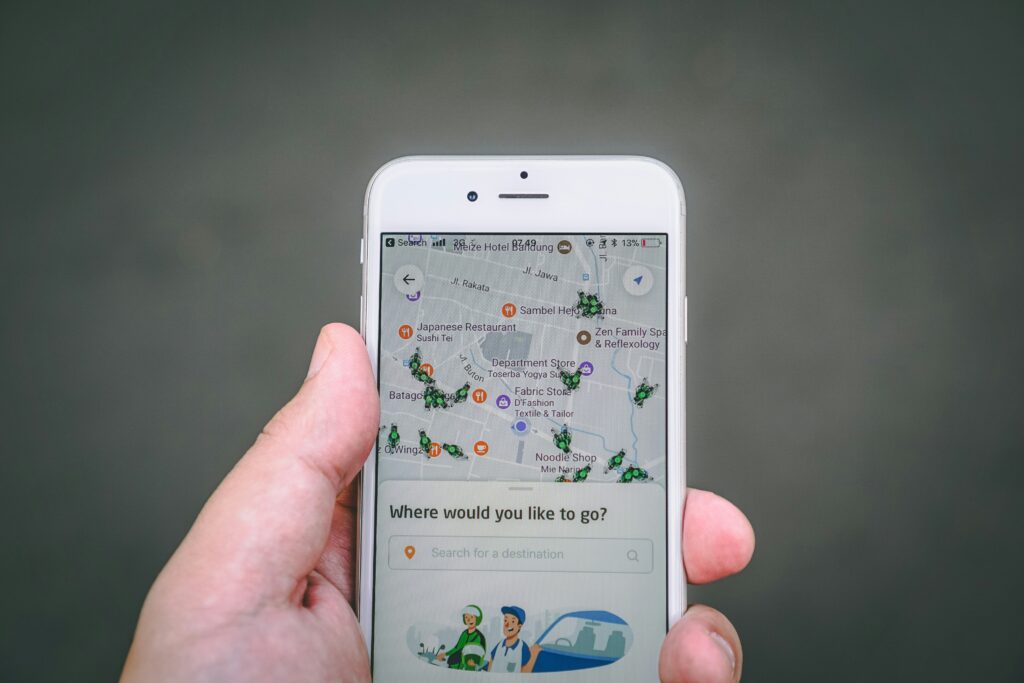Ride-sharing services like Uber and Lyft have transformed urban transportation, offering convenience and affordability. As the popularity of these services has increased, so have the incidents of accidents involving ride-share vehicles. If you find yourself in a crash involving a ride-share vehicle, understanding your legal options is important to ensure that you’re protected and compensated for your injuries and damages.

Analyzing Liability in Ride-Share Accidents
Determining liability in ride-share accidents can be complex, often involving multiple parties. Unlike traditional car accidents, where liability may fall squarely on the driver, ride-share incidents may require examining the roles of the ride-share company, the driver, the other parties involved, and even pedestrians. In many cases, ride-share drivers may be classified as independent contractors rather than employees, which complicates the liability process.
The specific circumstances of the accident heavily influence liability. If your ride-share driver was on duty and accepted a fare at the time of the accident, the ride-share company may bear some of the responsibility. Conversely, if the driver was off-duty or not actively transporting a passenger, liability may lean more towards the driver. Consult with a professional who can provide insights and assist in uncovering the intricate details surrounding your case.
Compensation Options Available
Once liability is established, the next critical step is exploring possible compensation options. Victims of ride-share accidents may pursue compensation for medical expenses, lost wages, pain and suffering, and property damage. In many scenarios, insurance coverage plays a significant role in the amount of compensation available to you.
Ride-share companies typically carry insurance policies that provide coverage for drivers while they are transporting passengers. These policies usually cover the costs related to accidents, but the specific terms, such as policy limits and deductibles, need to be investigated. If the ride-share driver’s insurance falls short, other avenues like pursuing personal injury claims against the driver are fundamental. For comprehensive guidance, consider seeking legal support for Uber accidents that navigate the complexities of your case. Acting quickly after an accident can help preserve crucial evidence and protect your rights.
The Role of Insurance in Ride-Share Accidents
Understanding how insurance impacts ride-share accidents is crucial for anyone involved. Both the ride-share company and the driver maintain insurance policies that may apply during an accident. Typically, ride-share companies provide coverage based on the status of the driver at the time of the incident: whether they were waiting for a ride request, en route to pick up a passenger, or transporting a passenger.
Most major ride-sharing companies in the US carry liability insurance ranging from $1 million to $2 million for each accident while a driver is on duty. Gaps in coverage might exist, particularly when deactivated or off-duty. Navigating these policies and understanding the coverage limits are important steps in pursuing your compensation claim.
Steps to Take After a Ride-Share Accident
After a ride-share accident, the steps you take can significantly influence your ability to file a successful claim. First, prioritize your health by seeking medical attention, even if you feel fine initially, as some injuries may not be immediately apparent. Detailed documentation is key, so ensure you gather evidence promptly. This includes photographs of the accident scene, contact information of witnesses, and any dashcam footage, if available.
Report the accident to both the ride-share company and law enforcement. File an official police report, as this documentation can be crucial in the claims process. Be cautious about discussing the details of the accident with insurance companies, as they may seek to minimize their liability. Having a qualified attorney by your side will ensure you are not taken advantage of and that your legal rights are maintained.
Negotiating Your Claim
Once you’ve navigated the initial steps following an accident, you may enter negotiations with the insurance companies involved. It’s vital to approach this stage with caution and knowledge. Insurance companies often aim to settle quickly and for the lowest possible amount, which may not reflect the true extent of your damages.
Having an experienced attorney can significantly strengthen your negotiating position. They can provide evidence of the accident’s impact on your life and advocate for the compensation you deserve. If negotiations fall short, your attorney can prepare to take your case to court when necessary, ensuring that you have the best chance at a fair outcome.
The Importance of Legal Representation
Securing legal representation after a ride-share accident can drastically alter the outcome of your situation. A knowledgeable lawyer can help you navigate the complexities of ride-share accident laws, negotiate with insurance companies, and represent your interests in court if needed. They bring experience in similar cases and understand the nuances that can affect your case.
Many attorneys work on a contingency fee basis, meaning you only pay if you win your case. This arrangement can alleviate financial stress, allowing you to focus on your recovery. Knowing you have a dedicated advocate in your corner can provide peace of mind as you deal with the aftermath of an accident.

Having a well-informed attitude about your legal options following a ride-share crash is crucial for navigating the aftermath effectively. From understanding liability issues and insurance coverage to knowing how to negotiate claims and the importance of legal representation, being proactive is key to achieving the best possible outcome.














